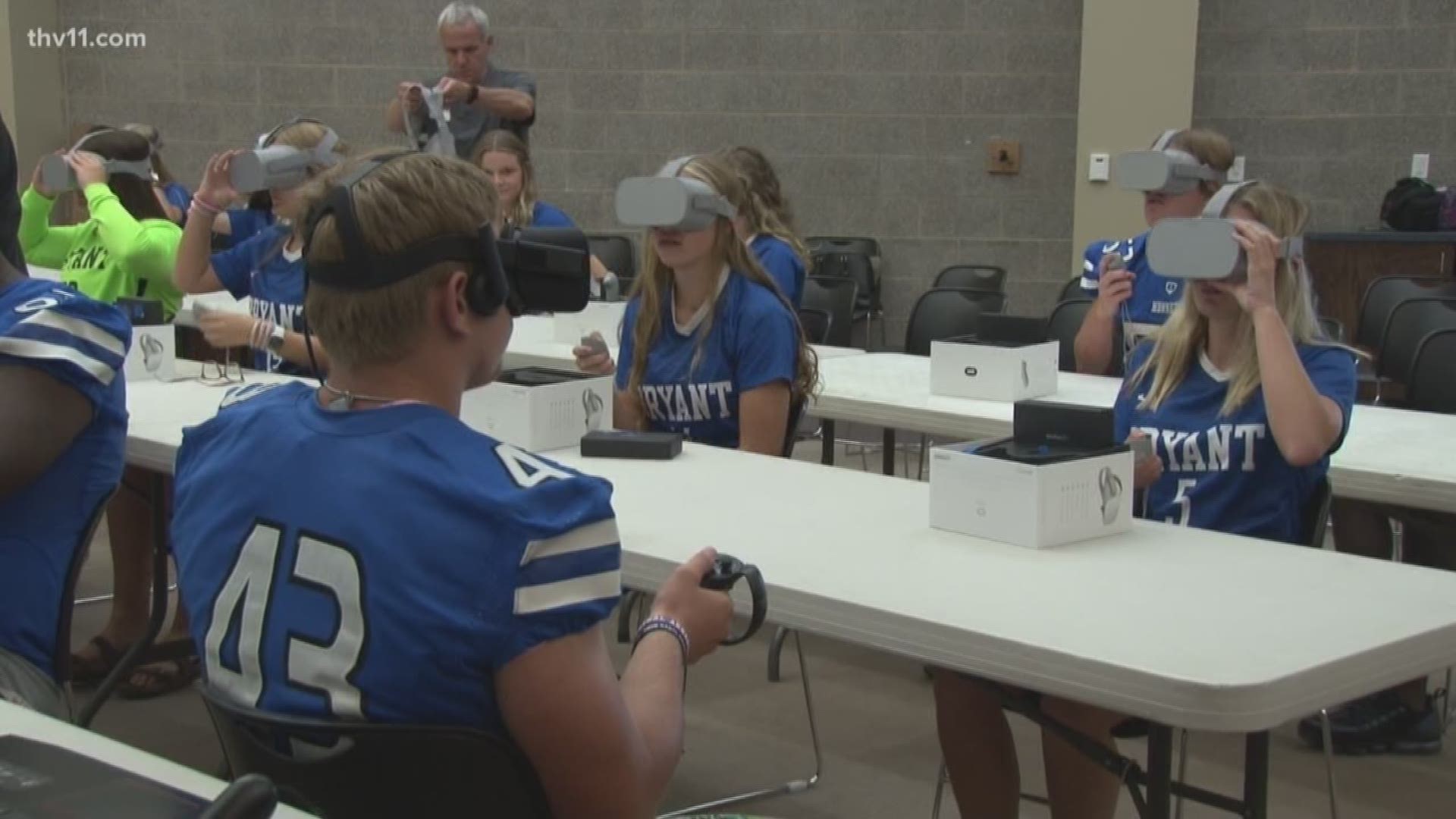BRYANT, Ark. — As high school football starts up in Arkansas, a first-in-the-nation program is about to give student athletes of all kinds a high-tech way to tell what to do if they get a concussion.
"It's cool. It's super cool," said Matthew Dosier, the CEO of the EAST Initiative.
He's describing a virtual reality program called 'Crash Course.' It lets real life high school game players use video gaming tools to find out about concussions.
"I played football my entire life," said Ryan Burns, a former starting quarterback for Stanford, who described how his life and career changed after getting a concussion in 2016.
"I knew immediately. It was one of those things where I was totally disoriented. I couldn't remember anything, even the most basic of plays," he said.
Burns said his school work and personal life took a turn after the untreated injury as well. He uses it to illustrate both the pressure to keep playing, and the dangers of making that mistake.
After graduating, he stayed on at Stanford to get involved with TeachAids, the non-profit that developed the virtual reality program to educate players about those hard hits to the head.
"I'm excited to just start that movement with concussion education being a thing," he said.
That movement began in Arkansas on Wednesday at Bryant High School, where the defending state champion football team is getting ready for the annual Salt Bowl against their rival, Benton. Their girls soccer team also won a state title last spring. Both teams got to be the first in the state to try the devices.
"I feel like it will help them get the message quick," said Devin Potts, a senior center on the Hornets. "It's serious and that it's nothing to play with at all."
All the players donned the Oculus headsets and were immersed in a virtual locker room surrounded by other players.
They get hyped by the coach and run onto the field. After a few plays, the wearer lines up for a running play. That's when an opposing player smashes through and the screen turns bright white.
Players can then choose to keep playing or take a knee. If they keep going, they eventually find themselves set to receive a kick only to faint as it hits their helmet. They then wake up in a hospital.
"It really put a different perspective on it," Devin said, while adding that he has suffered a concussion and has had conversations with his parents about injuries in football.
After the virtual game, reality is starting to settle in about her concerns.
"I got to be on her side now," he said. "I see her picture now. I see it."

